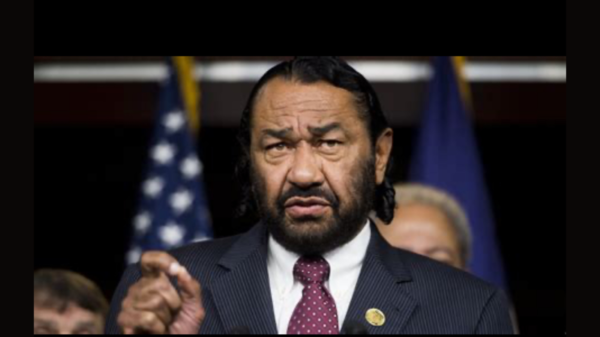By Charlene Crowell
Special to The Informer

May 14 was the day that the Consumer Financial Protection Bureau (CFPB) was set to implement a new rule that would save credit card holders an estimated $14 billion each year. The rule would provide savings of $220 per year on average for people who are charged late fees. Instead, a federal district judge imposed a temporary injunction that halted the rule’s implementation.
Reactions to the injunction marked a clear divide between corporate business interests that claimed and cheered a legal victory while many government and consumer groups saw the decision as harmful to the more than 167 million consumers who have credit cards.
CFPB seeks to lower credit card late fees to $8 per month, instead of the current $32 now charged by a $1 trillion industry that has steadily jacked up the price of delinquent fees for years. Further, the rule would only apply to card issuers that have one million or more accounts. It would also allow these very large issuers an opportunity to justify future proposed increases by showing the CFPB actual costs incurred.
Speaking on behalf of the Biden administration’s ongoing efforts to end a variety of junk fees, spokesman Jeremy Edwards said, “We are disappointed that a court sided with House Republicans, big banks and special interests to hit pause on a critical measure to save American families billions in junk fees.”
“It is disappointing that the court has granted this last-ditch effort by the banks to prevent these critical limits on credit card late fees from going into effect next week,” said Chuck Bell, advocacy program director for Consumer Reports. “Credit card companies have been bilking consumers out of billions of dollars in excessive late fees for far too long.”
“The financial burden of late fees falls most heavily on people living paycheck-to-paycheck, low- and moderate-income consumers, and people of color,” continued Bell. “CFPB research has found that people with low incomes pay proportionately bigger fees because they tend to have smaller credit card balances.”
The U.S. Chamber of Commerce, the world’s largest business federation and lead plaintiff in the litigation, issued a statement that underscored the long-standing and anticipated future opposition to the CFPB.
“The CFPB’s attempted micromanagement would have raised costs for most credit card users and made it harder for businesses to meet consumers’ needs,” said Maria Monoghan, the organization’s Litigation Center Counsel. “The U.S. Chamber will continue to hold the CFPB accountable in court.”
Similarly, Rob Nichols, the president and CEO of the American Bankers Association, speaking on behalf of the nation’s $23.7 trillion banking industry said in part, “We thank our co-plaintiffs for their collaboration, and we look forward to the Court ultimately ruling on the merits of our case.”
The veiled references to continued legal efforts to oppose the CFPB, were anticipated by a U.S. Senate Banking Committee hearing held on May 9, the day before the federal judge’s ruling.
Ohio Sen. Sherrod Brown, the committee’s chair, opened the session by saying, “The CFPB took a major step towards reducing costs for consumers when it issued its Credit Card Late Fee rule. Credit card late fees are the most-costly and frequently applied junk fee. According to one report, 1 in 5 adult Americans, an estimated 52 million people, paid a credit card late fee last year.”
“By law, credit card late fees are supposed to be ‘reasonable and proportional’ to the cost that companies incur for late payments,” continued Sen. Brown. “So, let’s be clear: these are massive, trillion-dollar Wall Street companies. The idea that you missing your payment due date by a day or two is imposing some huge cost on the credit card company is ridiculous.”
Testifying at the hearing, Adam Rust, the Consumer Federation of America’s Director of Financial Services, noted how industry trends impose harms – especially to consumers of color.
“While the existence of junk fees is not new, their presence in the daily lives of consumers is growing,” stated Rust. “As a result, junk fees now exist in places where they have previously not occurred. Junk fees are multiplying in number, variety, and frequency. Americans are being ‘nickeled and dimed’ by these practices.”
“The system is harmful to everyone but more harmful to vulnerable low-wealth consumers and consumers of color,” continued Rust. “The CFPB’s campaign against junk fees will help consumers save money. The Consumer Federation of America is strongly supportive of the credit card late fees rule.”
Although it is probable that the temporary injunction will lead to more litigation appealing for the rule’s reinstatement, at press time no related developments were filed. But as more than 90 national, state, and local organizations noted in a joint advocacy letter to Members of Congress and the Senate this April, “low-income individuals and people of color bear the brunt of these fees, with those making less than $32,000 annually paying twice as much in late fees as those making $150,000.”
The bottom line in this continuing saga: civil rights include silver rights.
Charlene Crowell is a senior fellow with the Center for Responsible Lending. She can be reached at Charlene.crowell@responsiblelending.org.









You must be logged in to post a comment Login